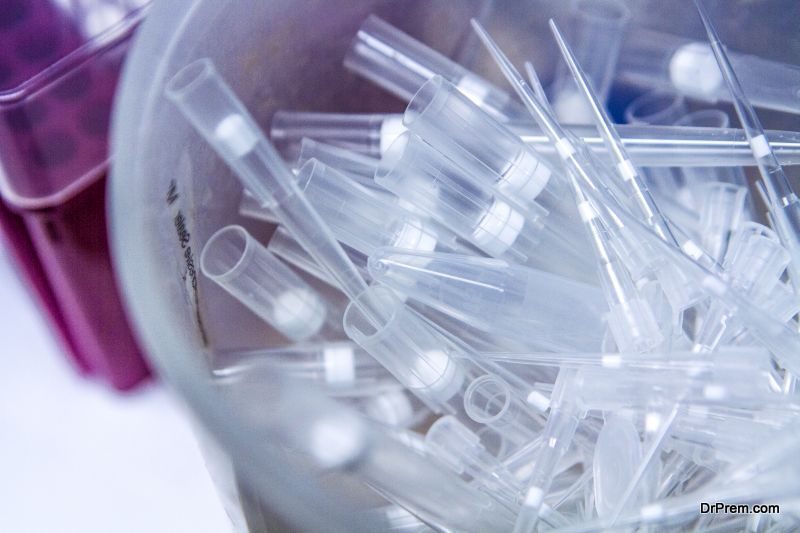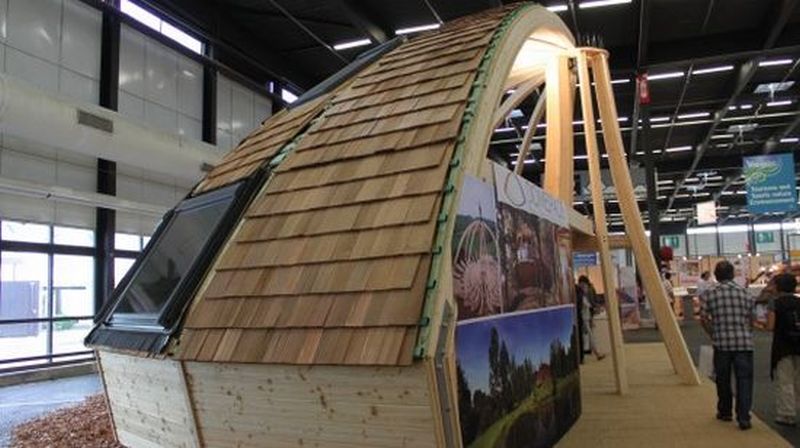Hospitals have many reasons to incorporate green construction methods. Eco friendly hospitals would have better air quality which can induce better health in people. Energy efficient features can reduce the use of conventional energy, thus lowering energy bills. Medical equipment can be reprocessed and better waste management practices, right from the time of construction can lower the pressure on landfills. Let’s take a look at some eco friendly construction methods that can benefit hospitals and patients:
Use of local and recycled materials during construction
 Sourcing the construction materials locally would help the local economy. There are many recycled materials, which can be used to build, so that there is less use of raw material. At the time of construction, the waste that is produced can be marked for recycling or sold to recycling centres to reduce the huge amount of waste that is produced during construction.
Sourcing the construction materials locally would help the local economy. There are many recycled materials, which can be used to build, so that there is less use of raw material. At the time of construction, the waste that is produced can be marked for recycling or sold to recycling centres to reduce the huge amount of waste that is produced during construction.
Use of eco friendly and sustainable materials can also make the building green. Following LEEDS guidelines can earn the hospital, the coveted LEEDS certification.
Green construction practices which benefit hospitals
 With the growing advances in green construction, hospitals can request their architects to come up with sustainable building designs. Hospital architects can incorporate energy efficient systems, which make the most use of ambient light and natural ventilation. Proper building orientation can be followed to make the most use of the wind and sun’s energy. This would benefit patients also, as natural sunlight and breeze is extremely good for health.
With the growing advances in green construction, hospitals can request their architects to come up with sustainable building designs. Hospital architects can incorporate energy efficient systems, which make the most use of ambient light and natural ventilation. Proper building orientation can be followed to make the most use of the wind and sun’s energy. This would benefit patients also, as natural sunlight and breeze is extremely good for health.
Conserving water

A huge amount of waste water is produced in hospital, and setting up a water recycling system can help hospitals to conserve water. Rain water harvesting, setting up recycling bins etc should be thought of at the time of construction itself. Installing low flow faucets and toilets also would save water. The recycled water can be used to water the hospital’s garden and indoor plants.
Energy efficient HVAC systems

Energy star rated HVAC systems can help to reduce the electricity bill as well as conserve electricity. Setting up electronically controlled shades can help to keep the interior temperature comfortable, and reduce the use of HVAC units. Sensors, which use the latest occupant sensitive lighting as well as cooling and heating, are also effective energy efficient devices.
Roof garden
 A roof garden can be built which patients can benefit from. They can sit in the sunlight in the natural environment of the garden, which helps to reduce blood pressure and anxiety. It has been seen that a green environment helps in quick recovery. The garden can be beneficial for hospital staff and patients’ families too, serving as a peaceful and calm retreat from the stress of the hospital.
A roof garden can be built which patients can benefit from. They can sit in the sunlight in the natural environment of the garden, which helps to reduce blood pressure and anxiety. It has been seen that a green environment helps in quick recovery. The garden can be beneficial for hospital staff and patients’ families too, serving as a peaceful and calm retreat from the stress of the hospital.
The plants on the rooftop absorb sunlight, which reduces the amount of solar heat, which would be reflected into the atmosphere, thus reducing warming effect.
Sourcing green energy

Many hospitals are sourcing their energy from renewable energy sources, such as wind and solar energy. Hospitals can follow the example of Thomas Jefferson Hospital and University, which gets 35% of electricity from wind energy. Chilled water plants can be used to cool buildings, saving both electricity and water.
Replacing or using energy efficient bulbs like LED bulbs in the entire building can make a huge difference to the energy use of the hospital.
Waste reduction, treatment and disposal of waste
 According to the WHO, each nursing home or hospital bed in America, generates 6 pounds waste daily, out of which one pound consists of hazardous material (such as radioactive material drugs and chemicals, infectious materials). A lot of waste is plastic waste, which is toxic for the environment.
According to the WHO, each nursing home or hospital bed in America, generates 6 pounds waste daily, out of which one pound consists of hazardous material (such as radioactive material drugs and chemicals, infectious materials). A lot of waste is plastic waste, which is toxic for the environment.
Environment groups urge hospitals to implement technologies, which treat waste via microwave units, hybrid steam treatment and other steam based technology. Apart from that, general waste management practices should also be put in practice to reduce waste.
Setting up composting units
 Hospital kitchens produce a lot of organic waste, which can be composted to fertilize the garden or rooftop garden. At the time of construction, space should be allocated for composting at the back of the hospital premises.
Hospital kitchens produce a lot of organic waste, which can be composted to fertilize the garden or rooftop garden. At the time of construction, space should be allocated for composting at the back of the hospital premises.
Eco friendly construction of hospitals can help to conserve a lot of energy and valuable resources like water. Hospitals can set the example by being good environmental stewards and the money saved by green practices can be utilized for research and better patient care.




